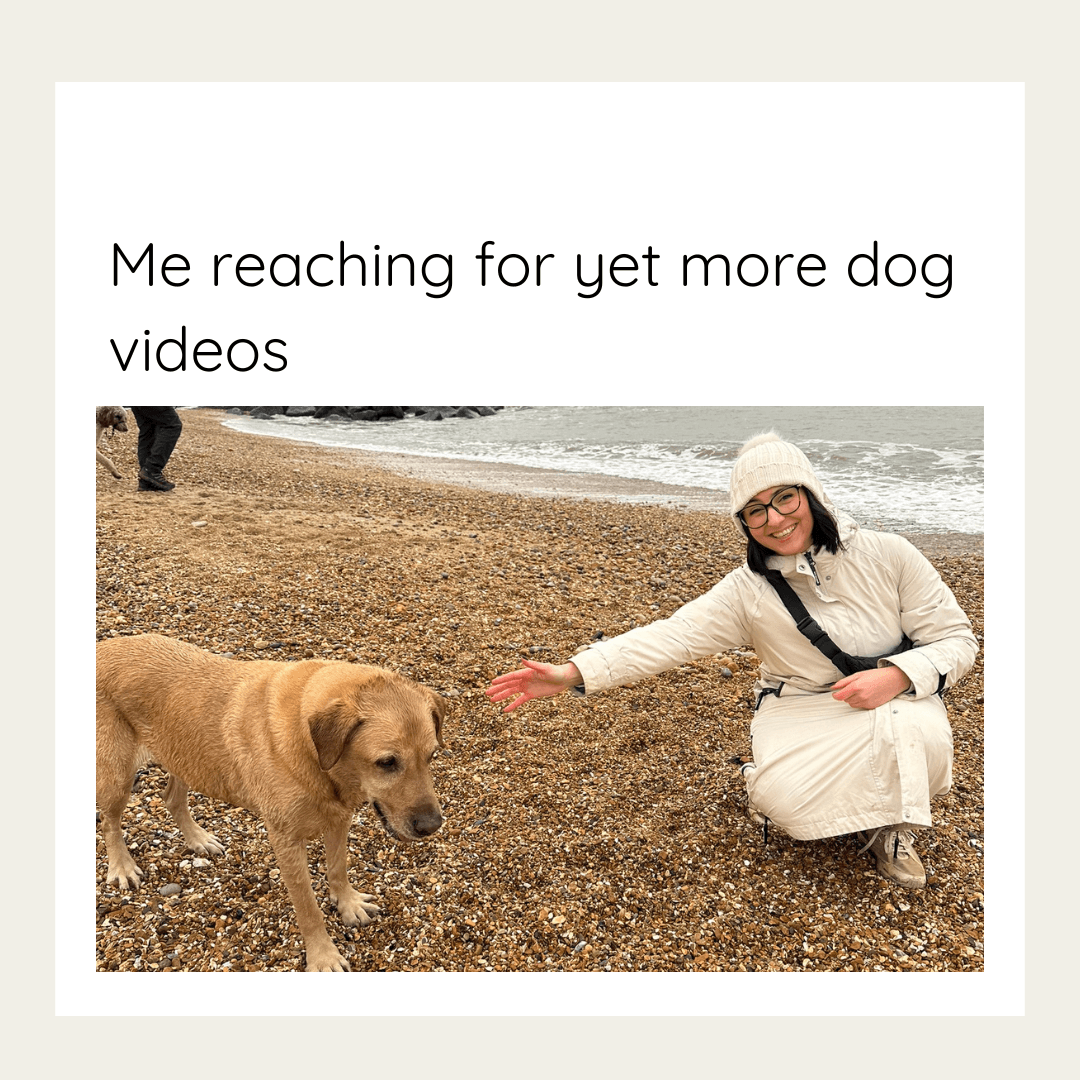
Your Literary Path to
Self-Realisation & Inner Growth
5 Signs My Nervous System is Overwhelmed as a HSP
One of the most powerful things I've discovered on my healing journey is that recognizing nervous system overwhelm isn't just about the big revelations - it's about noticing the small, strange patterns that reveal what's really going on beneath the surface. As someone who's passionate about helping others tune into their inner wisdom, I've become fascinated by these subtle stress signals our nervous system sends us. Here are five peculiar warning signs I've noticed in myself that always indicate something deeper needs tending.
Why Recognizing Stress Signals Matters for HSPs
For highly sensitive people and neurodivergent minds, our nervous systems process information more deeply than others. This means we can become overwhelmed more quickly, but also that we often receive earlier warning signs before reaching complete burnout. Learning to read these signals is like having an early warning system for your mental health.
Sign 1: Doom Dog Scrolling
I came off social media over two years ago, so doomscrolling isn't something I now get sucked into. I did, however, keep Pinterest for creative inspiration purposes but the Pinterest algorithm does still have data about my biggest weakness: dog videos.
One of the strongest tell-tale signs that my nervous system is out of whack is when I lose an hour or two watching videos of dogs, especially when I'm lying in bed, exhausted, and should really be sleeping.
Like how your body craves chocolate when it actually needs protein, when I'm mentally and emotionally drained, my brain thinks a yellow Labrador is the solution. Since I don't have one of my own, my brain seeks the next best thing: dog videos.
Because I spent 2024 as a full time dog sitter, I have my own personal supply of dog content. Thousands of photos, hundreds of minutes of footage of snoring snouts and wagging tails. I can get high on my own supply.
But because scrolling on my phone isn't a daily habit, I now see it as a clear sign that something is off, and I need look at how I can support myself better.

That is genuinely me, though, (not a random meme off the internet) with a yellow Labrador I used to look after.
Sign 2: Shopping as Emotional Distraction
When I'm not dogscrolling, another phone-based warning sign that my nervous system is overwrought, is endless online browsing.
It's like there's a part of me that recognises that something is missing in my life. But instead of doing the difficult, messy work of looking inward, another part of me steps in. This part convinces me that whatever's missing is something I can buy, something that can be delivered in a neat package, wrapped in ribbon. Much better than the tangled heap that might be waiting in my psyche.
Most recently, I was convinced that I needed an oversized pink graphic T-shirt. That I needed this to bring more joy into my life. That I would get up for work on Monday morning and be happy about being awake to put on this pink t-shirt and would go about my day with a sunnier disposition.
I have never in my life had a graphic tee. Yet suddenly I needed a "joyful graphic tee," as I proceeded to indicate to the search engines.
Inevitably, the search engines asked 'what about a graphic tee with dogs on it?'
Understanding Emotional Shopping for HSPs
For highly sensitive people, emotional shopping often serves as a way to manage overwhelming feelings. When our nervous systems are dysregulated, we may unconsciously seek external solutions to internal overwhelm. Recognizing this pattern is the first step toward addressing the root cause rather than the symptoms.
Sign 3: Self-Care Routines Feel Impossible
The thing I take most seriously in my life is my evening wind-down routine. It took years to build and involved a major mindset shift, as I was a poetry-writing, emotionally intensive night owl throughout my teens and twenties. After starting my healing journey in 2018, I discovered just how much sleep and relaxation impact my mental health.
My routine starts early, at 8:30 p.m., when my phone goes into sleep mode. It includes a bath, skincare, frequency music, journaling, reading, CBD oil, an acupressure mat, and a sleep hypnosis meditation.
But when my nervous system is dysregulated, my routine slips. I'll feel "too tired" to have a bath or moisturise my face. The same books that normally inspire and excite me feel too demanding. But then I spend two hours looking at dogs on the internet. And guess what, I don't feel good afterwards and my sleep is affected.
Something that is usually so important to me, and so enjoyable, feels really hard to do. Tell-tale burnout symptom.
The Importance of Consistent Self-Care for Nervous System Regulation
For sensitive souls, consistent self-care routines aren't luxury—they're essential for nervous system regulation. When these practices start feeling overwhelming rather than nourishing, it's often a clear sign that stress levels have exceeded our capacity to cope.

A night-owl not adhering to his sleep routine either.
Sign 4: Nothing Feels Right (The Playlist Problem)
Frequency music basically soundtracks my life and is my answer to everything. Physical pain? Get 174hz on. Feeling anxious? 364hz will fix it.
So I know things are off when I can't get through a minute of any of my go-to playlists or frequency tracks, without switching to something else because it doesn't feel right. When my usually relaxing music seems to tickle my nerves, I know I'm dysregulated.
This one is frustrating because knowing I need rest, but struggling with the things that usually bring me relaxation, is a catch-22. It's a sign that a quick dose of self-care isn't enough. My nervous system needs me to confront what's going on at a deeper level before any of my usual self-care habits will work.
Sign 5: The Never-Ending To-Do List
When I'm well-regulated, I have a practice I call "three things." I only set myself three tasks a day, and I only have three overarching priorities for my life, at any given time, one of which is always my health and wellbeing. It's a flexible system, adaptable to my energy levels. The tasks can be as simple as "shower, laundry, read" or as ambitious as "write an article, cook dinner, do Pilates."
This practice allows me to tick things off my list in a way that is manageable and makes me feel good rather than overwhelmed and self-critical.
When my nervous system is stressed, my brain completely disregards this practice and instead constantly conjures more tasks, nagging me about things I "need" to do, in really minute detail, like sorting out my magazine collection or cleaning a mirror.
Every waking second, even those first moments of consciousness when waking up in the night, is spent adding to the list, generating more stress.
I think that must be the point. I think that it is my system's way of saying 'hey, I'm stressed'. In our culture, it's not acceptable or justified to be feeling stressed from 'normal' things, like socialising, taking lots of work calls, or spending energy on trying to figure out your life and career plans. Therefore, composing the world's longest and most ridiculous to-do list is a way for our brains to translate this stress into something that's "acceptable" to be stressed about.
The Psychology Behind Overwhelm and Task Creation
Understanding why our brains create endless to-do lists during stress can help us respond with compassion rather than self-criticism. This pattern is common among sensitive people who often feel pressure to be productive even when their nervous system is asking for rest.
How to Respond to These Nervous System Overwhelm Signs
When you notice your own quirky stress signals in yourself, here's how to respond with self-compassion:
Practice Curiosity, Not Judgment
Instead of criticizing yourself for these patterns, approach them with the same curiosity you'd bring to understanding a friend's experience. These behaviours are information, not character flaws.
Address Root Causes, Not Just Symptoms
While it's tempting to just delete apps or force yourself back into routines, these signs often point to deeper needs for rest, boundaries, or emotional processing.
Create Flexible Coping Strategies
Develop alternative self-care practices that work even when your usual ones feel overwhelming. This might mean shorter meditation sessions, gentle movement instead of intensive exercise, or reading a short story instead of a 800 page political novel.
Honour Your Sensitivity as Information
Remember that your sensitive nervous system is giving you valuable data about your environment and inner state. These signals are your body's wisdom, not inconveniences to overcome.
Supporting Your Nervous System Through Literature and Reflection
These five signals are my mind's way of waving a tiny flag to pull my attention to what's really putting stress on my nervous system. When I spot these signs, instead of trying to outmanoeuvre them, I try to read them like I would a text - with curiosity and compassion, looking for what they're really trying to tell me about my inner landscape.
It's a lifelong process, but recognising some of your own unique stress signals is a powerful, supportive step to healing and creating a life that supports you.
Ready to Explore Gentle Approaches to Self-Understanding?
If you're a sensitive soul who recognizes these patterns in yourself, you're not alone. This kind of gentle self-awareness is at the heart of everything I teach at Soulful Study Collective. Through trauma-informed workshops, online courses, and 1:1 mentoring, I help HSPs and neurodivergent minds develop sustainable practices for self-discovery and healing.
Discover how literature, journaling, and reflective practices can support your journey toward greater self-understanding and nervous system regulation. Learn more about Soulful Study Collective and my gentle study approach.
Created with © systeme.io